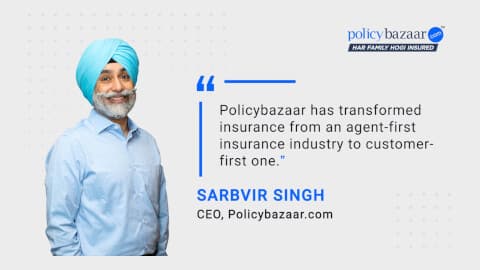1
Feeling Inadequately Insured? 3 Ways To Extend Your Health Insurance CoverWhat's New
Hybrid Working Model- The Future of Work
The post Covid-19 world has paved the way to remote working to ensure business continuity in these difficult times. E—commerce in India is a booming industry on a steep trajectory of growth. It is rapidly expanding at a CAGR of 27%, and the industry is expected to reach US$99 billion by 2024. Most e—commerce organizations have experimented with remote work models and as we stabilize after the second wave of the pandemic, there is an opportunity to adopt a hybrid working model.
One of the biggest financial advisories, Ernst and Young conducted a study to understand the evolution of remote work and the emerging hybrid work models recently. As per the study, adopting a hybrid working model is a natural choice going forward for e-commerce organizations. However, it is not an easy transition to ensure seamless coexistence of different types of employees. Participants in this study were fast-growing, e-commerce players across industry sub-segments such as EdTech, hyper local, insurtech, travel & hospitality, eB2B, FinTech and eB2C.
((relatedarticle_1))
According to the study, people practices that will sustain Hybrid models include productivity, connect and belongingness and equitable treatment. 49% of employers are looking to change how they measure productivity at work. Traditional outlook towards productivity may no longer suffice. According to Sarbvir Singh, CEO, Policybazaar, who participated in the study, opines that performance was a key driver in shaping our hybrid work model. “Agents who have lower productivity have been asked to return to work and we are already seeing improvement in outcomes. Our high-performing agents have been given an option to continue to work from anywhere as an earned privilege,” he said.
During the current times of managing teams virtually, he feels bringing meaning to the lives of employees, regular communications with them, and de-cluttering the focus areas at work should be the key areas. Managers have to provide a clear understanding of why they are doing something to the teams rather than just assigning work.
New work culture
Culture that will enable this hybrid work model includes a shared purpose that is clearly defined, communicated and understood by all greatly enables the organization’s success. In hybrid work, accountability of individual and team outcomes and transparency in performance delivery, especially in areas of shared responsibility is crucial to instill mutual trust and maintain high performance.70% of participating organizations have highlighted accountability and performance outcomes as a critical focus area. Emotional well—being is also a critical part of an individual’s overall health and attitude towards life and work. 44% of millennials and 38% of Gen Z employees who took time off work due to stress or anxiety said they hadn’t disclosed the real reason to their managers due to the stigma attached.
Going forward, organizations will need to go digital and transform for growth. Future-focused planning must place employees at the center, technology at speed and innovation at scale as the central values of transformation. Companies already operating with these value drivers are proving more resilient and will adapt even faster, in the new equilibrium and beyond.
Click here to read the full report: https://www.ey.com/en_in/workforce/hybrid-2-0-the-next-gen-work-model-is-here-to-stay
((newsletter))














